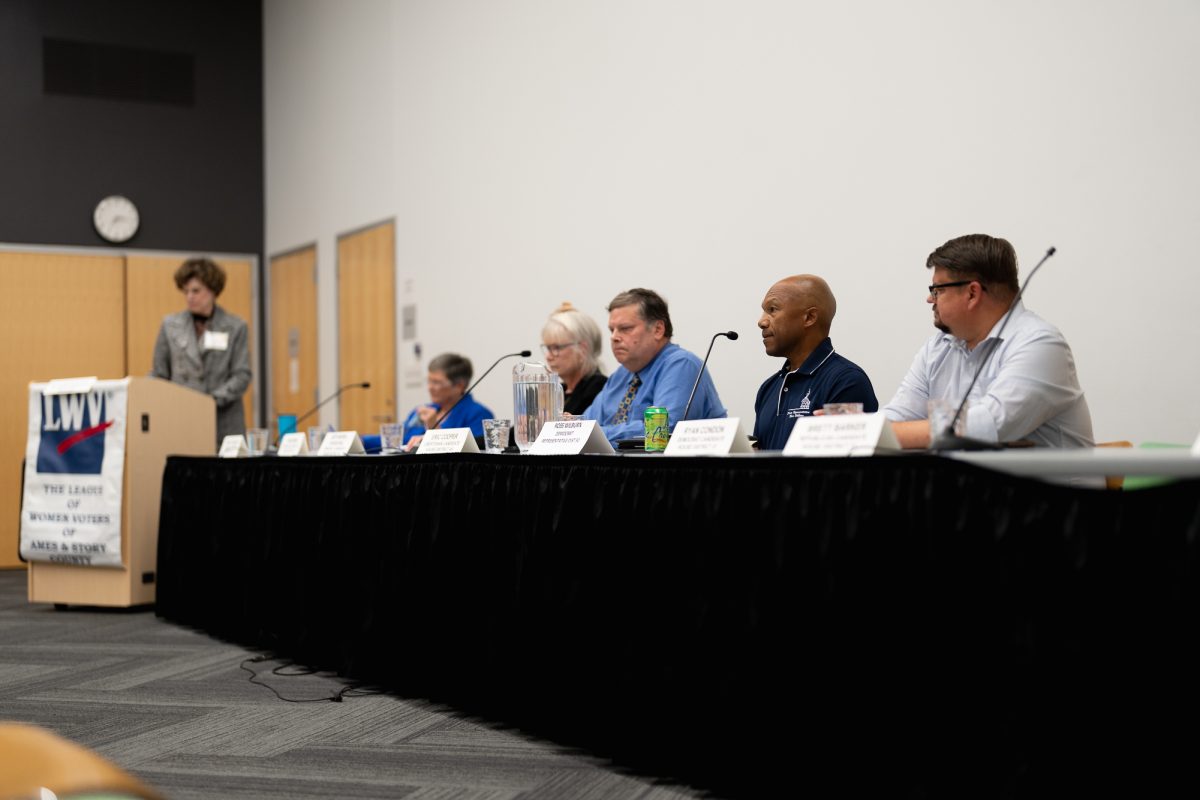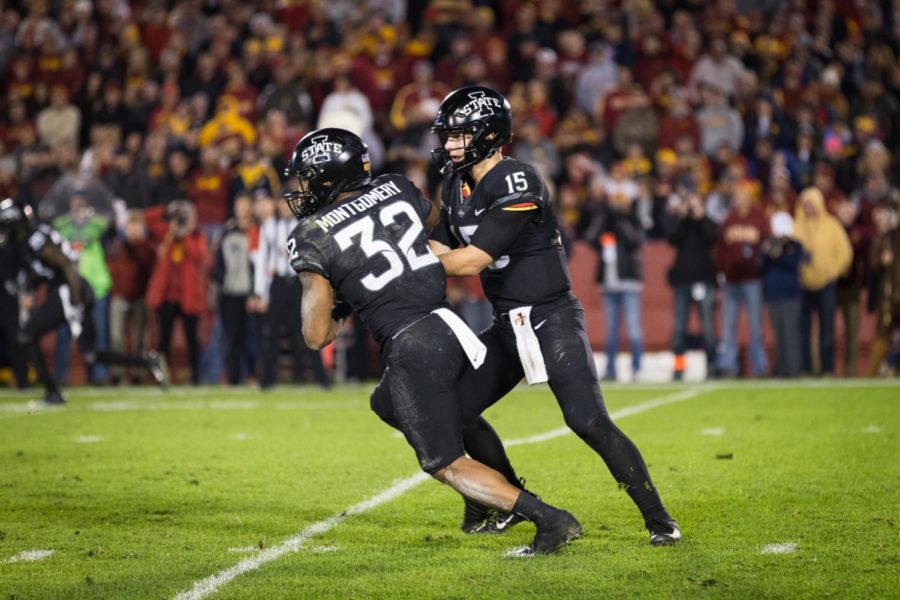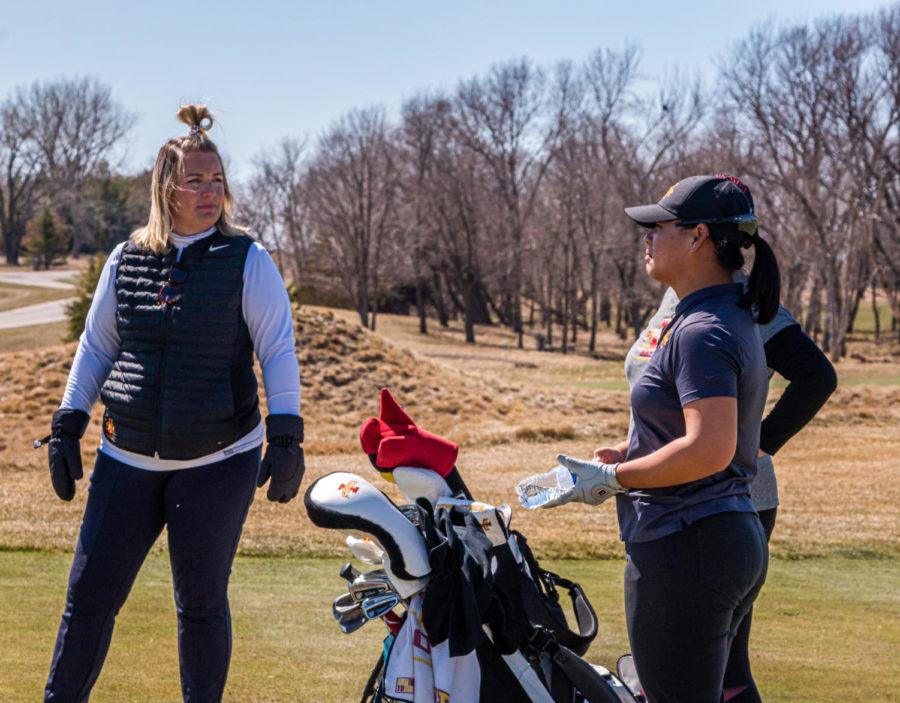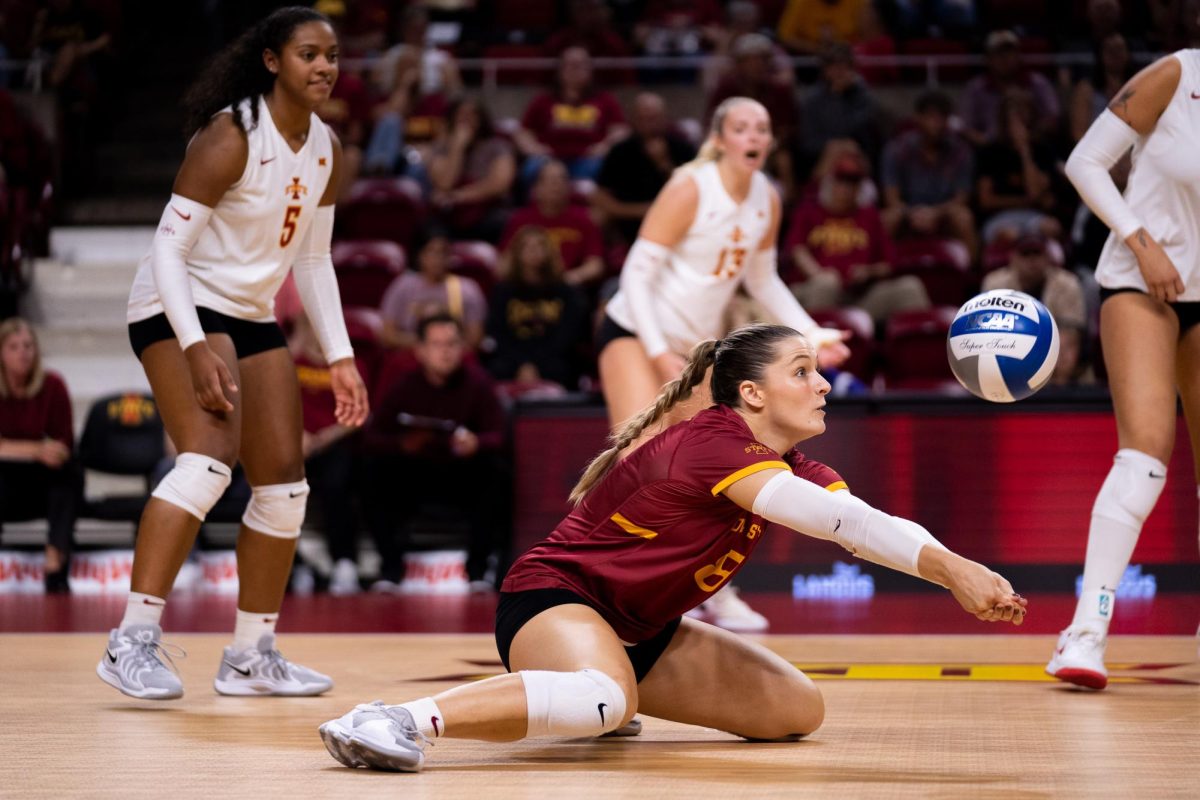One-on-one with Terry Carroll
January 26, 1999
One of the throng of new faces on this season’s Iowa State men’s basketball team is assistant coach Terry Carroll.
Carroll joined the Cyclones this past August after nine seasons as the head coach at Indian Hills Community College in Ottumwa, where he led the Warriors to a 269-50 record and back-to-back national junior college championships in 1997 and 1998.
Also at Indian Hills, Carroll was named the NJCAA National Coach of the Year as well as the GTE Junior College Coach of the Year in 1997 and 1998.
I sat down with Coach Carroll to discuss his past successes and first season at Iowa State, among other items.
Justin South: First off, you are an Ames native, so I’d like to know how your return has gone so far.
Terry Carroll: I’ve really enjoyed it. It’s surprising when you’ve been gone 25 years how much things have changed, yet also how things have stayed the same. It’s been nice to rekindle some old friendships with people you went to high school with and were close friends with but lost touch with. That’s been very unique and something I really enjoy.
JS: What does it mean to you to be an assistant coach at ISU and coach in your hometown?
TC: I think that being a coach at ISU is a real rewarding and challenging undertaking. The fact that it’s in my hometown is an added benefit. It’s just icing on the cake, so to speak. I really enjoy my job and the town I live in, so it adds a lot of special meaning to what I do. Still, I don’t consider this a “job” at all because I enjoy it so much and it’s just that much more satisfying.
JS: So far this season, the Cyclones have been fairly successful or at least better than last season. Where do you see the team going the rest of the season?
TC: With the team we have, if they continue to work as hard as they have up to this point in the season, I expect our team to get better and better. They can improve with every practice, every game and week-by-week and just continue to improve to the end of the season.
JS: Do you have any fond memories of your days at Ames High School that really stick out in your mind?
TC: Winning a state championship is something as a player that very few people have the opportunity to do. Basketball has been very good to me throughout my life, and I’ve had a lot of great experiences, but yet the thing that sticks with me more than anything is winning the state basketball championship at Ames High School in 1973. A group of young guys were able to be successful and get lucky to win a state championship.
JS: You had an incredible run while coaching at Indian Hills and were the coach for 72 of the 89 consecutive victories that broke UCLA’s national record for most consecutive victories. Now that Indian Hills has broken the record, how does that achievement make you feel?
TC: You very rarely have the opportunity to do something that no one else has done in competitive athletics and when you do, it’s special. I am happy that the guys were able to do that because 20, 25 and 30 years from now, they’ll remember it. They’ll never forget that they were able to string together 89 straight victories. And it’s not just the guys who are there now, but the guys who started it. They’re just as important as the current players, because the first ten victories are just as valuable as the last ten. Without them, you have no streak.
JS: How would you describe or define your tenure at Indian Hills?
TC: I really enjoyed it a lot. It was a tremendous time in my life. It was nice to be around a great bunch of guys who knew how to do things right on the basketball court and in getting their degrees. I would never want to trade that experience for anything.
JS: How does junior college basketball differ from the Division I-A level?
TC: The strategies and plays are the same, but there are several differences. The biggest is that every night in Division I, everyone is well-coached and every game is a battle. Also, the talent level is much different. There were nights at Indian Hills where we were just better talent-wise than the other teams, no doubt about it. The Division I level is competitive on a night to night basis.
JS: After all the success at Indian Hills, what motivated you to leave that behind to become an assistant at ISU?
TC: My main goal is to become a Division I head coach and I had a couple of previous shots at D-I jobs fall through, so I thought that it would be better for me to get the D-I experience from a great coach like Larry Eustachy. Larry is a super coach, and I have learned a lot from him on a daily basis that has made me and will continue to make me a better coach. In coaching, you ‘steal’ things all the time, so I try to ‘steal’ as much knowledge as I can from Larry.
JS: ISU has relied upon JUCO players for a large portion of its roster in recent years, a trend that seems to be growing across Division I basketball. What types of advantages and disadvantages do the JUCO players have when they enter a Division I setting?
TC: First, the JUCO players have been in college for two years, so they’ve got a little more experience under their belts. They’ve played 65-70 games and against a variety of competition, but they’ve also got 60-65 credits completed, so they must be academically sound as well. The disadvantage is that they only have two years at Division I to play ball. There is a big transition period on the court as you move up each level; junior high to high school, JV to varsity, varsity to junior college, junior college to D-I and so forth. They have to adjust very quickly, or it will cost them more games at this level.
JS: Why did you get into coaching?
TC: I always enjoyed sports, especially in college. After college, I didn’t really know what to do with my life and there was an opening at Fort Dodge (High School). At the time, there was a coaching shortage, so if you had the experience, you were a coach. After being in it a while (coaching later as an assistant at Drake and head coach at Ottumwa High School), I enjoyed it a lot and decided that I want to stay in it.
JS: What is your opinion on early entries into the NBA Draft?
TC: When a person has an opportunity to make money, they sometimes look at the short run and not the long run. If you’re a good player, the money will still be there if you stay in school and graduate.
JS: You said before that you’d like to be a D-I head coach. Any other goals or dreams?
TC: I just want to be successful in anything that I undertake or pursue.






